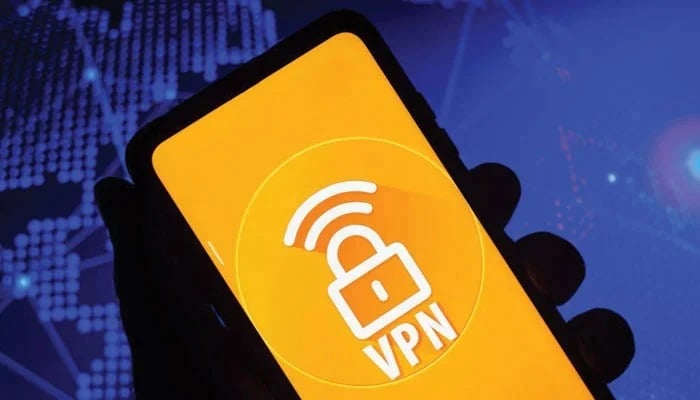In Pakistan, up to 20m attempts being made daily to access explicit content using VPNs
Complaints about slow browsing speeds surge as unregistered VPNs are widely used to bypass restrictions
ISLAMABAD: Pakistanis are reportedly making up to 20 million daily attempts to access blocked explicit content using unregistered virtual private networks (VPNs), despite government restrictions, sources told The News.
The Pakistan Telecommunication Authority (PTA) has ramped up efforts to restrict access to such sites, having already blocked over 844,000 immoral websites and more than 100,000 offensive URLs.
As unregistered VPNs are widely used to bypass these restrictions, complaints about slow VPN speeds have surged. In response, the PTA has started blocking unregistered VPNs, citing security risks and concerns over unauthorized access to illegal content.
The sources revealed that the PTA is working to expedite the whitelisting of authorised VPN services to address these issues.
Officials from the PTA said that unregistered VPNs pose significant security risks by potentially allowing unauthorised access to sensitive data. The authority has also temporarily restricted certain VPNs to facilitate their registration and inclusion in its whitelist.
Since the VPN registration process began in 2010, around 20,500 VPNs have been registered, covering over 1,422 companies, with efforts underway to accelerate compliance.
Many users have reported disruptions in free VPN services, affecting secure browsing capabilities. PTA officials assured that measures are being taken to streamline VPN registration while preventing illegal access. VPNs are commonly used worldwide to bypass content restrictions.
Recently, the Ministry of Religious Affairs urged the PTA to block and restrict access to pornographic, blasphemous, and other harmful online content.
In a letter to the top telecommunication regulator, the religious affairs ministry expressed concerns over Pakistan becoming "one of the leading countries in terms of viewing pornographic content, which is highly alarming, especially in light of its negative impact on public morality and the well-being of our society".
The PTA has actively blocked URLs carrying “anti-Islam, indecent, and immoral” content, reaching about 1.3 million blocked URLs as of July 2024.
A report shared with the Peshawar High Court earlier this month noted that the PTA’s web monitoring system had processed 1.38 million URLs, blocking 93.84% (or 1.303 million) due to inappropriate content.
The PTA’s report was presented in response to a petition calling for a complete ban on TikTok, claiming that the platform allowed “blasphemous and indecent” material.
Counsel for the PTA, Jehanzeb Mehsud, confirmed the submission of a comprehensive report as directed by the court.
Further details reveal that of the URLs blocked, 1.02 million were categorised under “decency and immorality,” with others related to security, defamation, sectarian hate speech, and contempt of court.
Some 147,569 Facebook URLs, 125,600 TikTok URLs, and 53,872 Twitter URLs have been blocked, among others.
The PTA also disclosed that from 2020 to date, TikTok has removed over 113,000 items classified as immoral or anti-Islamic, with 24,800 removals this year alone.
-
Security forces gun down 30 terrorists in multiple IBOs in KP: ISPR
-
MQM-P calls for new province in Sindh
-
US report validates Pakistan military edge over India: PM
-
Banned TTP poses serious threat to Pakistan security: UNSC panel
-
CM Afridi clarifies remarks on by-poll after ECP requests army deployment
-
Dubai sees 3.2m Pakistani passengers in 2025 as airport sets new milestone
-
Security forces kill 23 Indian proxy terrorists in KP's Kurram
-
Pakistan to construct island to boost oil exploration: report












